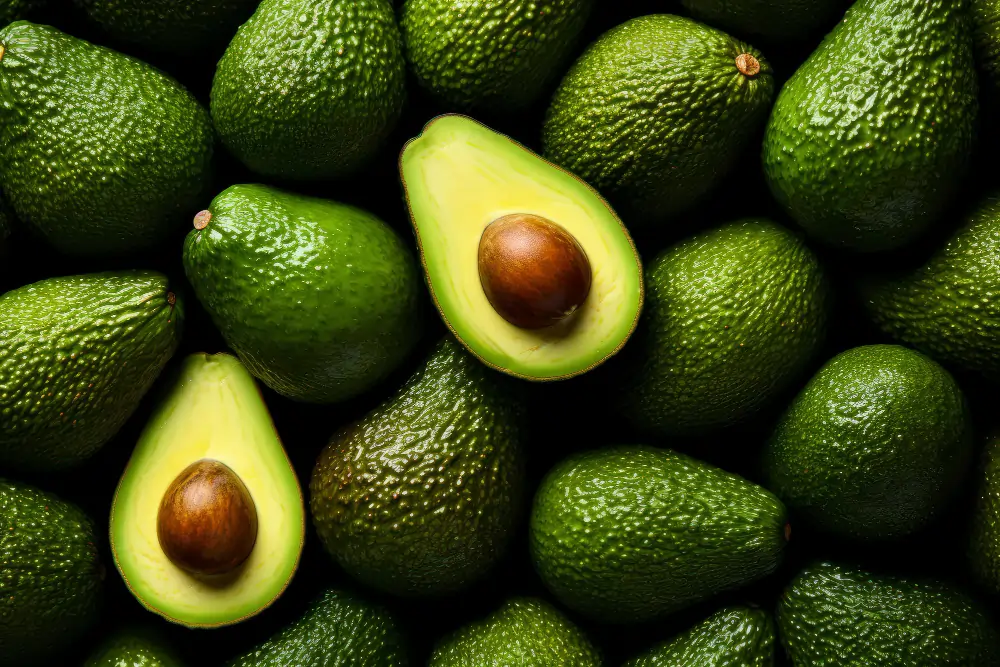
Chronic Heart Disease
Chronic heart disease is a condition that affects millions of people worldwide. It refers to a range of heart-related conditions that persist over time, such as coronary artery disease, heart failure, and arrhythmias. These conditions can cause various symptoms and complications, impacting the overall quality of life. Understanding the importance of a heart-healthy diet and making informed food choices is essential in managing chronic heart disease effectively.
To combat this condition effectively, it is essential to focus on incorporating the 8 heart-healthy foods into your diet. These foods are specifically chosen for their heart-protective properties and can provide numerous benefits
Importance of Diet in Managing Chronic Heart Disease
The saying “you are what you eat” holds true when it comes to heart health. Diet plays a pivotal role in managing chronic heart disease and reducing the risk of complications. A well-balanced and nutritious diet can help control cholesterol levels, maintain healthy blood pressure, manage weight, and reduce inflammation within the cardiovascular system. By making smart dietary choices, individuals with chronic heart disease can improve their overall well-being and mitigate the progression of the disease.
Essential Nutrients for Heart Health
To understand the significance of certain foods in managing chronic heart disease, we must first acknowledge the vital nutrients promoting heart health. Healthy fats, fiber, and antioxidants are key players in maintaining cardiovascular well-being.
Healthy fats, also known as unsaturated fats, are found in foods such as fish, nuts, and avocados. These fats include omega-3 fatty acids, which have been shown to decrease inflammation, reduce triglyceride levels, and improve overall heart health. Incorporating these fats into your diet in moderation can prove to be immensely beneficial.
Fiber is another essential nutrient for heart health. It aids in regulating blood sugar, controlling cholesterol levels, and maintaining a healthy weight. Whole grains, fruits, vegetables, and legumes are excellent sources of fiber. By including these foods in your daily meals, you can improve your heart health and lower the risk of complications.
Antioxidants are compounds that combat free radicals, and harmful molecules that can cause inflammation and damage to the cells. Diets rich in antioxidants have been associated with a reduced risk of heart disease. Colorful fruits and vegetables, such as berries, are rich in antioxidants. By incorporating these foods into your diet, you can reap the benefits of their heart-protective properties.
8 Heart-Healthy Foods to Add in Your Diet
1. Salmon
Salmon is a nutritional powerhouse renowned for its rich content of omega-3 fatty acids. Omega-3 fatty acids play a crucial role in reducing inflammation and lowering the risk of heart disease. Consuming fatty fish like salmon twice a week can provide ample amounts of omega-3s and contribute to better heart health. Apart from being a great protein source, salmon also contains vitamins, minerals, and antioxidants that support overall well-being.
2. Berries
Berries, such as blueberries, strawberries, and raspberries, are not only delicious but also packed with heart-healthy nutrients. These small fruits are rich in antioxidants, including anthocyanins, which have been shown to reduce the risk of heart disease. Furthermore, berries are an excellent source of vitamins, fiber, and minerals, making them a valuable addition to any heart-healthy diet.
3. Kale and Spinach

Dark leafy greens, like kale and spinach, provide abundant nutrients while being low in calories. These greens are rich in vitamins A, C, and K, as well as fiber and minerals like potassium. Regular consumption of kale and spinach has been associated with a reduced risk of heart disease and improved blood pressure levels. Whether incorporated into salads, smoothies, or cooked dishes, these greens can be a fantastic addition to your heart-healthy diet.
4. Nuts and Seeds
Nuts and seeds, such as almonds, walnuts, flaxseeds, and chia seeds, are excellent sources of healthy fats, fiber, and protein. These heart-healthy foods can help reduce LDL (“bad”) cholesterol levels while increasing HDL (“good”) cholesterol. They are also rich in antioxidants, magnesium, and other minerals that promote heart health. A handful of nuts or a sprinkle of seeds can enhance the nutritional value of your meals and protect your heart.
5. Oats
Oats are a comforting and versatile cereal grain that offers numerous benefits for heart health. They primarily contain soluble fiber known as beta-glucan, which helps reduce LDL cholesterol levels and stabilize blood sugar levels. Oats are also rich in antioxidants and various vitamins and minerals, making them a valuable addition to a heart-healthy diet. Whether enjoyed as oatmeal or incorporated into baked goods, oats can provide sustained energy and promote heart health.
6. Avocado
Avocado is a unique fruit known for its creamy texture and high content of monounsaturated fats. Monounsaturated fats have been linked to reducing “bad” cholesterol and increasing “good” cholesterol, improving overall heart health. Avocados are also rich in potassium, a mineral that aids in managing blood pressure levels. Adding avocado to sandwiches, and salads, or enjoying it as guacamole can contribute to a delicious and heart-healthy diet.
7. Legumes
Legumes, including beans, lentils, chickpeas, and peas, offer an excellent source of plant-based protein, fiber, and essential nutrients. These nutrient-dense foods have been shown to reduce the risk of heart disease, lower cholesterol levels, and manage blood sugar control. Incorporating legumes into your diet, whether in soups, stews, salads, or as a substitute for meat, can improve heart health and provide ample nutrition.
8. Dark Chocolate

Good news for chocolate lovers! Dark chocolate, when consumed in moderation, can provide heart-healthy benefits. Dark chocolate is rich in antioxidants known as flavonoids, which help reduce inflammation and improve blood flow. However, it’s important to choose dark chocolate with at least 70% cocoa content and consume it in moderation to avoid excessive sugar and calorie intake. Indulging in a small piece of dark chocolate can be a delightful treat that supports heart health.
Incorporating Heart-Healthy Foods into Your Diet
Now that we’re familiar with these heart-healthy foods, it’s essential to discuss ways to incorporate them into your diet effectively. Here are some practical tips:
- Include salmon or other fatty fish in your meals at least twice a week. Grilled, baked, or steamed dishes with moderate seasoning can add variety and flavor to your diet.
- Add berries to your breakfast routine by including them in cereals, yogurt, or smoothies. A simple handful of berries can provide a burst of antioxidants to start your day.
- Experiment with kale and spinach in salads or as a side dish with your main meals. Sautéed, steamed, or used in soups, these leafy greens can bring a nutritional punch to your plate.
- Enjoy a handful of nuts and seeds as a snack or add them to salads, yogurt, or oatmeal for added crunch and a nutrient boost.
- Start your day with a bowl of oats topped with berries, nuts, and seeds for a heart-healthy and delicious breakfast option.
- Spread mashed avocado on whole-grain toast or use it as a creamy addition to salads and sandwiches.
- Cook meals with legumes instead of meat a few times a week. Lentil soups, bean chili, or chickpea salads can provide protein and fiber while reducing saturated fat intake.
- Treat yourself to a small piece of dark chocolate with a high cocoa content as an occasional indulgence and a heart-healthy alternative to other sweet treats.
By incorporating these foods into your diet regularly and making them a part of your culinary repertoire, you’ll be well on your way to promoting heart health and managing chronic heart disease effectively.
Other Lifestyle Factors for Heart Health
While diet is a crucial aspect of managing chronic heart disease, it’s equally important to consider other lifestyle factors that contribute to heart health. Regular physical activity, such as walking, swimming, or cycling, can improve cardiovascular fitness, strengthen the heart muscle, and promote overall well-being. Engaging in stress management techniques, such as meditation, deep breathing exercises, or pursuing hobbies, can help reduce stress levels, which can negatively impact heart health. Additionally, limiting the intake of salt, sugar, and unhealthy fats can further support heart health by reducing the risk of high blood pressure, obesity, and other contributing factors.
Foods to limit
A heart-healthy eating plan limits sodium (salt), saturated fat, added sugars, and alcohol. Understanding nutrition labels can help you choose healthier foods.
Conclusion
In conclusion, maintaining a heart-healthy diet is paramount for those with chronic heart disease. By incorporating the top 8 foods discussed in this article, such as salmon, berries, kale and spinach, nuts and seeds, oats, avocado, legumes, and dark chocolate, individuals can support their heart health and reduce the risk of complications. Remember to make these foods a consistent part of your diet and implement other lifestyle factors, like physical activity and stress management, to achieve the best results. With dedication to improving your diet and lifestyle, you can positively impact your heart health and enjoy a higher quality of life.
FAQs
1: Can these foods alone cure chronic heart disease?
While these foods provide numerous benefits for heart health and may reduce the risk of complications, they cannot cure chronic heart disease. It is essential to consult with healthcare professionals and follow a comprehensive treatment plan to manage the condition effectively.
2: How much salmon should I consume per week?
The American Heart Association recommends consuming at least two servings of fatty fish, such as salmon, per week. Each serving should be around 3.5 ounces or about the size of a deck of cards.
3: Are there any specific berries that are better for heart health?
Various berries, including blueberries, strawberries, raspberries, and blackberries, offer heart-healthy benefits. Each type of berry contains unique antioxidants and nutrients, so incorporating a variety into your diet is recommended for maximum benefits.
4: Can I replace kale and spinach with other greens?
While kale and spinach are particularly nutrient-dense, other greens like Swiss chard, collard greens, or beet greens can also provide beneficial nutrients. It’s great to include a mix of greens in your diet for diversity and a range of nutrient profiles.
5: Is it possible to eat too much dark chocolate?
While dark chocolate has heart-healthy benefits, it should still be consumed in moderation due to its calorie and sugar content. Stick to small portions, preferably selections that contain at least 70% cocoa, and balance your overall diet accordingly.
Remember, if you have specific dietary concerns or conditions, it’s always best to consult with a healthcare professional or a registered dietitian to tailor your diet to your individual needs.



 Afrikaans
Afrikaans Albanian
Albanian Amharic
Amharic Arabic
Arabic Armenian
Armenian Azerbaijani
Azerbaijani Basque
Basque Belarusian
Belarusian Bengali
Bengali Bosnian
Bosnian Bulgarian
Bulgarian Catalan
Catalan Cebuano
Cebuano Chichewa
Chichewa Chinese (Simplified)
Chinese (Simplified) Chinese (Traditional)
Chinese (Traditional) Corsican
Corsican Croatian
Croatian Czech
Czech Danish
Danish Dutch
Dutch English
English Esperanto
Esperanto Estonian
Estonian Filipino
Filipino Finnish
Finnish French
French Frisian
Frisian Galician
Galician Georgian
Georgian German
German Greek
Greek Gujarati
Gujarati Haitian Creole
Haitian Creole Hausa
Hausa Hawaiian
Hawaiian Hebrew
Hebrew Hindi
Hindi Hmong
Hmong Hungarian
Hungarian Icelandic
Icelandic Igbo
Igbo Indonesian
Indonesian Irish
Irish Italian
Italian Japanese
Japanese Javanese
Javanese Kannada
Kannada Kazakh
Kazakh Khmer
Khmer Korean
Korean Kurdish (Kurmanji)
Kurdish (Kurmanji) Kyrgyz
Kyrgyz Lao
Lao Latin
Latin Latvian
Latvian Lithuanian
Lithuanian Luxembourgish
Luxembourgish Macedonian
Macedonian Malagasy
Malagasy Malay
Malay Malayalam
Malayalam Maltese
Maltese Maori
Maori Marathi
Marathi Mongolian
Mongolian Myanmar (Burmese)
Myanmar (Burmese) Nepali
Nepali Norwegian
Norwegian Pashto
Pashto Persian
Persian Polish
Polish Portuguese
Portuguese Punjabi
Punjabi Romanian
Romanian Russian
Russian Samoan
Samoan Scottish Gaelic
Scottish Gaelic Serbian
Serbian Sesotho
Sesotho Shona
Shona Sindhi
Sindhi Sinhala
Sinhala Slovak
Slovak Slovenian
Slovenian Somali
Somali Spanish
Spanish Sundanese
Sundanese Swahili
Swahili Swedish
Swedish Tajik
Tajik Tamil
Tamil Telugu
Telugu Thai
Thai Turkish
Turkish Ukrainian
Ukrainian Urdu
Urdu Uzbek
Uzbek Vietnamese
Vietnamese Welsh
Welsh Xhosa
Xhosa Yiddish
Yiddish Yoruba
Yoruba Zulu
Zulu